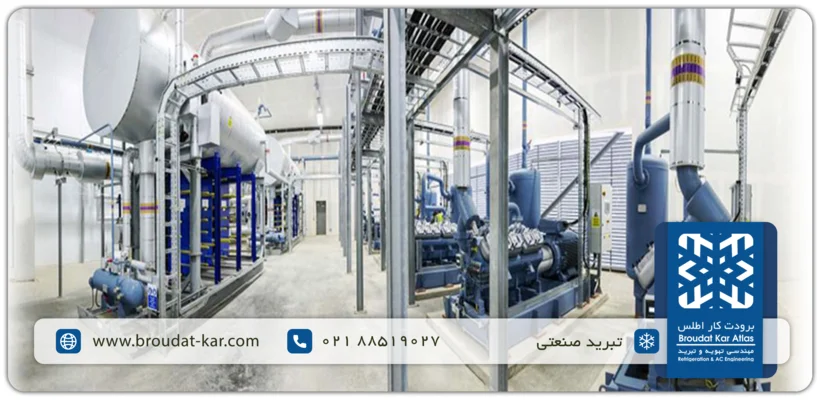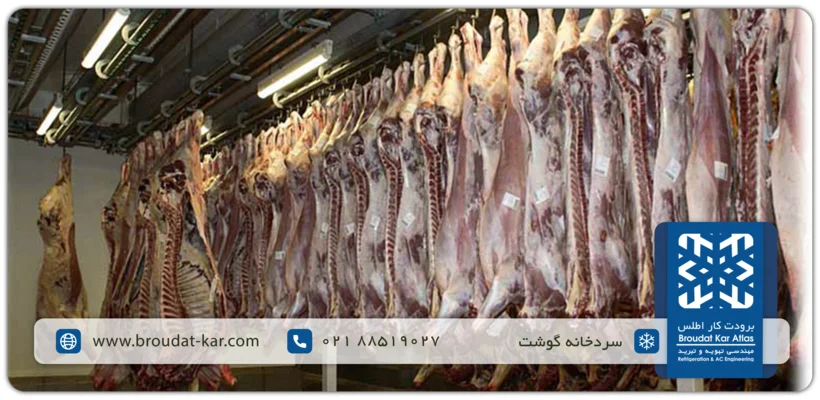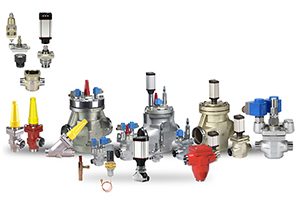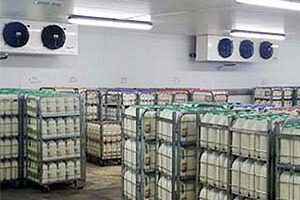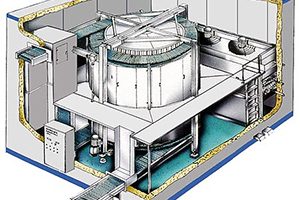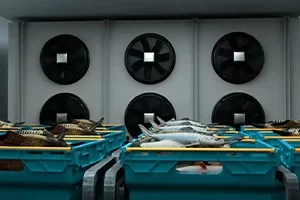What Is Industrial Refrigeration?
Industrial refrigeration encompasses a wide temperature range, from 7 degrees Celsius above zero for air conditioning to 70 degrees Celsius below zero for cold storage and freezing tunnels. Beyond this range, in the cryogenic industry, extremely low temperatures around 200 degrees Celsius below zero are utilized, primarily with liquid nitrogen, natural gas, and carbon dioxide. This field finds application in various industries, including food processing, chemical, and oil and gas.
Application of industrial refrigeration
Industrial refrigeration finds diverse applications, including cold storage for protein products as depicted. Moreover, it serves manufacturing and laboratory sectors demanding specialized conditions, notably low temperatures. Heat pumping, transferring heat from higher to lower temperature spaces (e.g., cooling in steel industries), also falls under industrial refrigeration. Subsequently, we’ll explore its pivotal role in food processing and storage.
Maximizing Food Shelf Life through Refrigeration
Refrigeration extends the shelf life of food by slowing microbial growth and spoilage. Lower temperatures delay microorganism activity, enabling prolonged consumption, with some products remaining viable for over a year under optimal conditions.
Storage Of Fruits and Vegetables in Cold Room
Certain fruits and vegetables, like bananas and apples, require storage temperatures above freezing to maintain quality. For instance, bananas, apples, tomatoes, cabbage, lettuce, potatoes, and onions are stored between 1 to 14 degrees Celsius. Each product has specific storage requirements, including temperature, humidity, and respiration rate, which can be adjusted in cold rooms. Some fruits can tolerate temperatures slightly below freezing due to dissolved sugars lowering their freezing point.
Storage of Protein-based Food in the Cold Room
Protein-based foods, including dairy, meat, poultry, and seafood products, have specific storage requirements. Dairy products, excluding certain items like ice cream, are typically stored slightly above freezing. Meat products maintain quality at super chilled temperatures around -1 degree Celsius for short-term storage, while long-term storage requires temperatures between -18 and -25 degrees Celsius.
Atlas Refrigeration Company, a pioneer in industrial refrigeration, offers comprehensive services, including designing and constructing various cold storage facilities, blast freezers, IQF systems, ice makers, and gas distillation systems.
Related posts
Industrial Refrigeration
What is Industrial Cold store? An industrial cold store is a large-scale facility designed and constructed to preserve and
Individual Quick Freezing (IQF) IQF or Individual Quick Freezing is commonly used for freezing fruits, berries, vegetables, French fries, shrimp,
What is Blast Freezer and How is it Used? Atlas Refrigeration Co., Ltd. specializes in manufacturing and installing advanced blast
